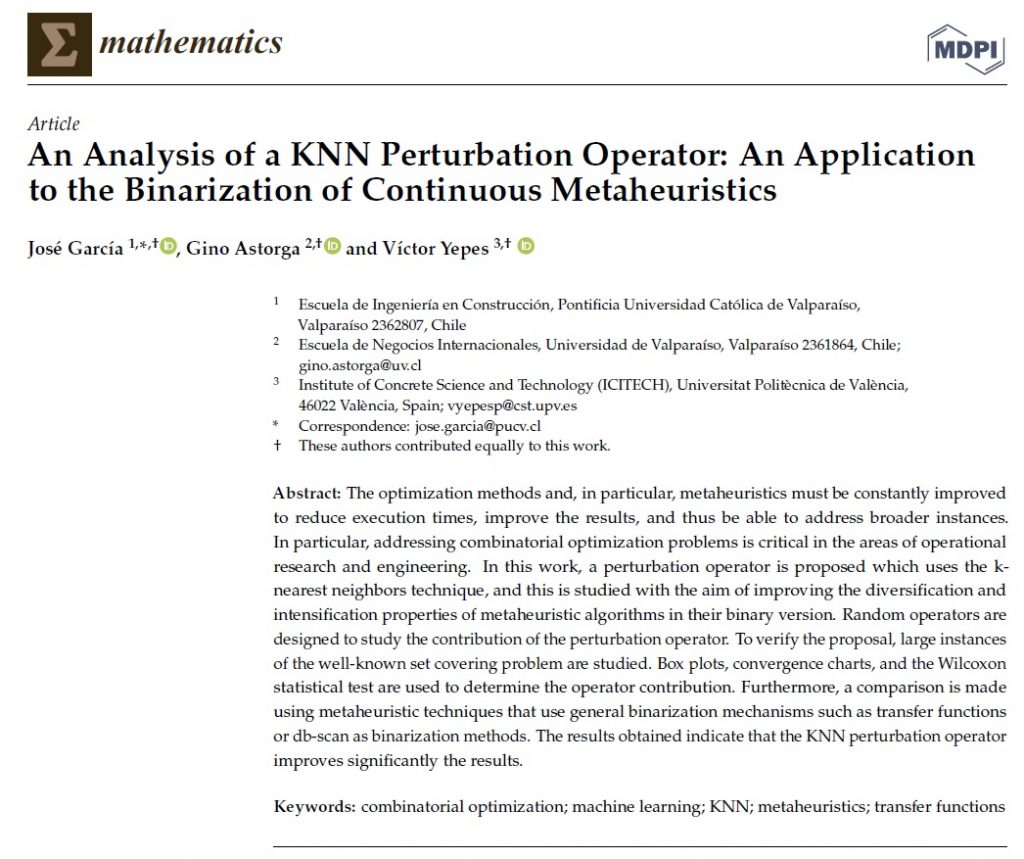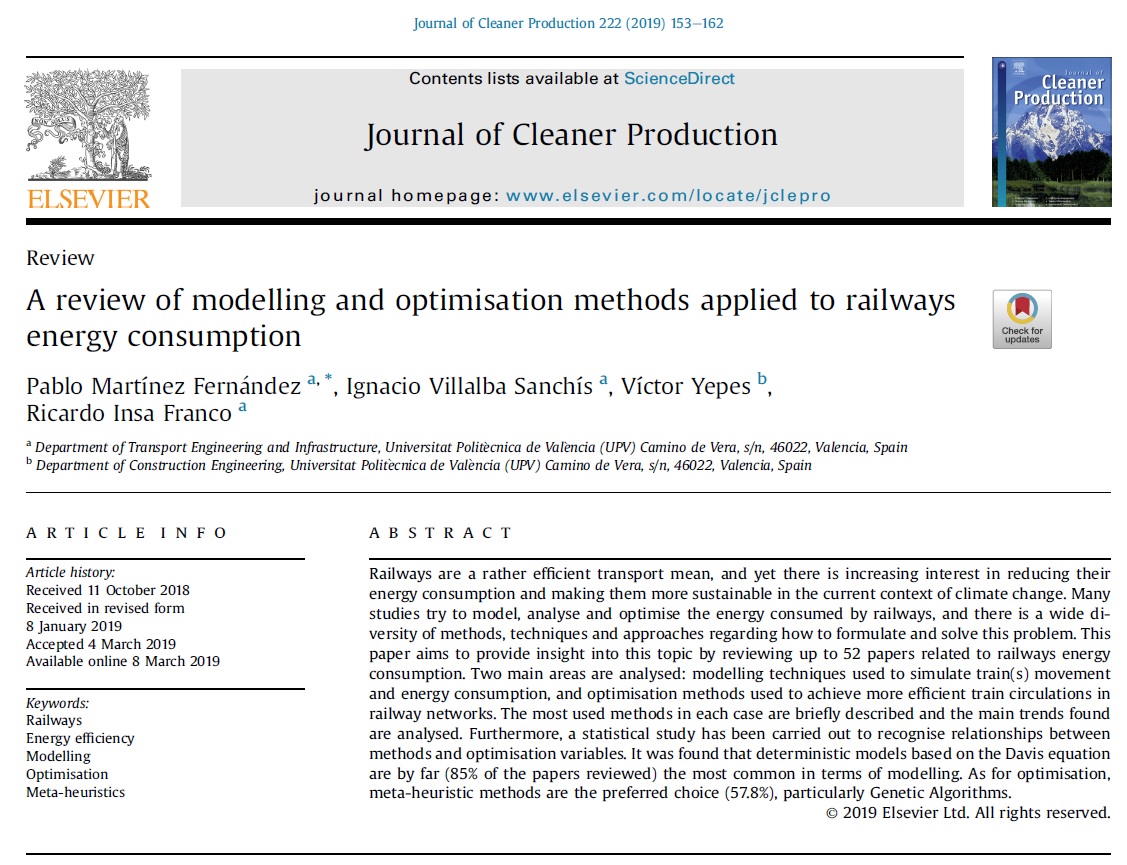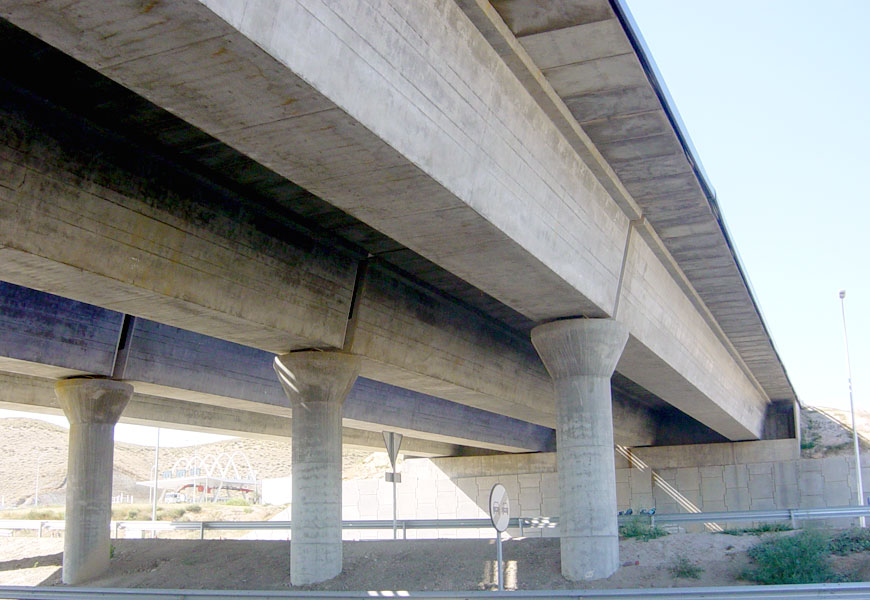 Acaban de publicarnos un artículo en la revista Mathematics, revista indexada en el primer cuartil del JCR. En este caso hemos abordado la binarización de metaheurísticas continuas. Se trata de una estrategia muy útil para el caso de la optimización de estructuras, puesto que éstas suelen presentar variables discretas para favoreces su constructabilidad. El trabajo entra dentro de la estrecha colaboración internacional de nuestro grupo de investigación, en este caso, con investigaciones chilenos.
Acaban de publicarnos un artículo en la revista Mathematics, revista indexada en el primer cuartil del JCR. En este caso hemos abordado la binarización de metaheurísticas continuas. Se trata de una estrategia muy útil para el caso de la optimización de estructuras, puesto que éstas suelen presentar variables discretas para favoreces su constructabilidad. El trabajo entra dentro de la estrecha colaboración internacional de nuestro grupo de investigación, en este caso, con investigaciones chilenos.
En este trabajo se propone un operador de perturbación que utiliza la técnica de k-vecinos más cercanos, y se estudia con el objetivo de mejorar las propiedades de diversificación e intensificación de los algoritmos metaheurísticos en su versión binaria. Se diseñan operadores aleatorios para estudiar la contribución del operador de perturbación. Para verificar la propuesta, se estudian grandes instancias del conocido problema de cobertura de conjuntos. Se utilizan gráficos de caja, gráficos de convergencia y la prueba estadística de Wilcoxon para determinar la contribución del operador. Además, se realiza una comparación con técnicas metaheurísticas que utilizan mecanismos generales de binarización como las funciones de transferencia o el db-scan como métodos de binarización. Los resultados obtenidos indican que el operador de perturbación KNN mejora significativamente los resultados.
ABSTRACT:
The optimization methods and, in particular, metaheuristics must be constantly improved to reduce execution times, improve the results, and thus be able to address broader instances. In particular, addressing combinatorial optimization problems is critical in the areas of operational research and engineering. In this work, a perturbation operator is proposed which uses the k-nearest neighbors technique, and this is studied with the aim of improving the diversification and intensification properties of metaheuristic algorithms in their binary version. Random operators are designed to study the contribution of the perturbation operator. To verify the proposal, large instances of the well-known set covering problem are studied. Box plots, convergence charts, and the Wilcoxon statistical test are used to determine the operator contribution. Furthermore, a comparison is made using metaheuristic techniques that use general binarization mechanisms such as transfer functions or db-scan as binarization methods. The results obtained indicate that the KNN perturbation operator improves significantly the results.
KEYWORDS:
Combinatorial optimization; machine learning; KNN; metaheuristics; transfer functions
REFERENCE:
GARCÍA, J.; ASTORGA, G.; YEPES, V. (2021). An analysis of a KNN perturbation operator: an application to the binarization of continuous metaheuristics. Mathematics, 9(3):225. DOI:10.3390/math9030225.






